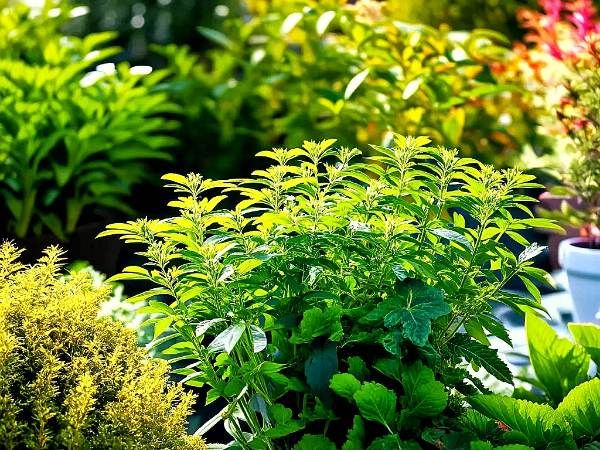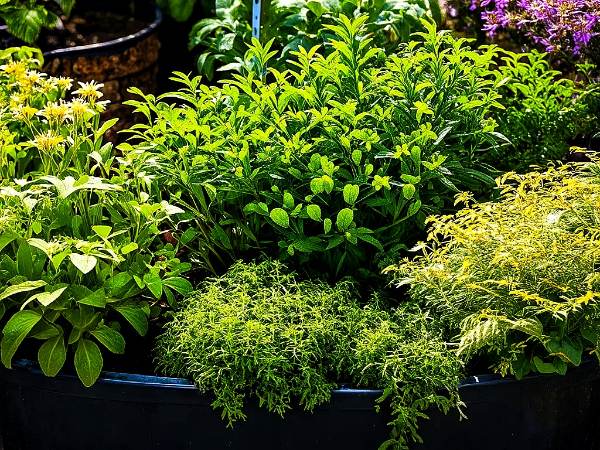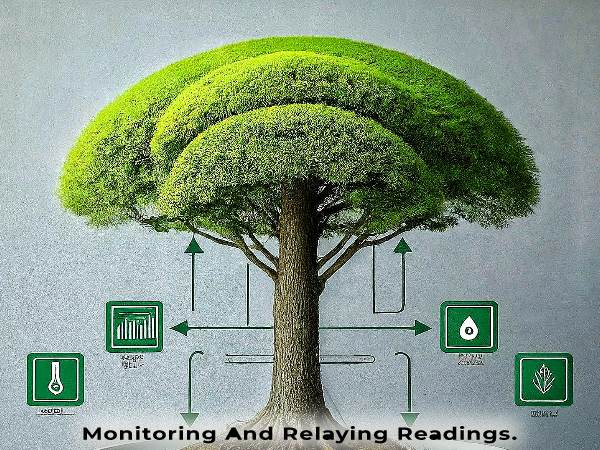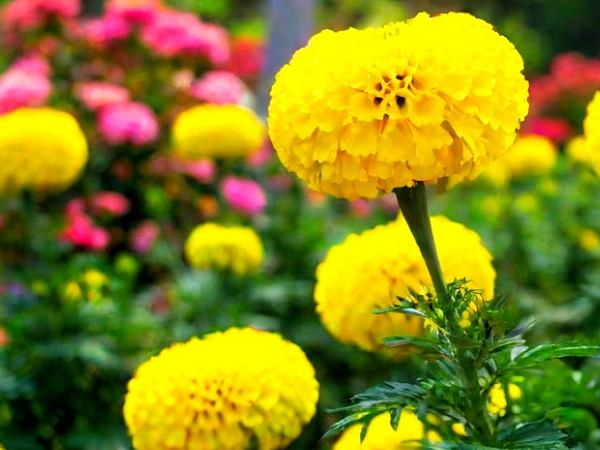Whether you’re a seasoned gardener or just starting out, you’ll find something to pique your interest and fuel your passion for plants. Our articles cover a wide range of topics, from practical gardening techniques to the latest horticultural research, and everything in between.
But the benefits of urban forests for water management go beyond flood prevention. Trees also play a vital role in purifying water. As rainwater percolates through the soil, it is filtered by layers of organic matter and microorganisms, removing pollutants and improving water quality. This natural filtration process helps to protect our rivers, lakes, and streams, ensuring a clean and healthy water supply for both humans and wildlife.
By recognizing the unique sensory experiences and communication strategies of plants, we open ourselves to a broader perspective on the diversity and interconnectedness of life on Earth
Before you start planting, it's crucial to assess the quality of your soil. Here are a few simple tests you can do at home:

14 june28
In India, sensory gardens often incorporate elements that have a special significance in local culture due to their unique characteristics.
As we've discovered in this guide, regenerative gardening is more than just a gardening method; it's a philosophy, a lifestyle, and a powerful tool for healing our dear Earth and enriching our lives.
Remember, IPM is an ongoing process of observation, learning, and adaptation. By staying vigilant and responding promptly to pest problems, you can maintain a healthy and vibrant garden while minimizing your reliance on chemical interventions.
Urban forestry practices should be environmentally, socially, and economically sustainable, ensuring the long-term health and viability of the urban forest.
Plants also have a sense of proprioception, or body awareness. This sense allows them to monitor their own position and movement, ensuring that they grow upright and maintain a stable posture. Proprioception is essential for plants to adapt to changing environmental conditions, such as wind or gravity.
Before you start planting, it's crucial to assess your site's sunlight exposure. Take some time to observe how sunlight patterns change throughout the day. Are there areas that receive full sun all day long, or are there spots that are shaded by trees,

14 june28
In India, healing gardens often incorporate Ayurvedic principles, which emphasize the balance of energies within the body and the use of medicinal plants. For example, you might find a garden designed to balance the three doshas (Vata, Pitta, and Kapha) using specific plants and layouts. You might also encounter fragrant flowers like jasmine and rose, known for their calming and uplifting properties, or medicinal herbs like Tulsi (holy basil) and Ashwagandha, used in Ayurvedic treatments for centuries. These are just few plants from the long list of such amazing plants available and used in India.
Today, we face new challenges, such as climate change, food insecurity, and environmental degradation. Regenerative gardening offers a way to address these challenges by creating sustainable food systems, protecting biodiversity, and building resilient communities.
By embracing No Tech IPM, you're not just controlling pests; you're fostering a vibrant and resilient ecosystem where nature's own checks and balances keep populations in harmony. It's a testament to the power of observation, patience, and a deep respect for the interconnectedness of all living things.
In the following articles of this series, we will embark on an exploration of the multifaceted world of urban forestry, delving into its ecological, social, and economic dimensions. We will uncover the hidden power of trees, the resilience of urban ecosystems, and the transformative potential of green spaces in our cities.
By understanding how plants use electrical signals, we can develop new strategies for improving crop yields, enhancing plant resilience, and even communicating with our gardens in new ways.
As you embark on your victory garden journey, remember that you're not just growing food; you're cultivating a healthier lifestyle, a stronger community, and a more sustainable planet. You're joining a movement of passionate gardeners who are redefining the way we think about food, connection, and our relationship with the earth.

14 june28
The future of therapeutic gardens in India is bright. As more and more people discover the benefits of nature-based healing, these gardens will continue to play an essential role in promoting holistic well-being. Whether you're seeking relief from stress, recovering from an illness, or simply looking to connect with nature, therapeutic gardens offer a sanctuary for your soul.
The victory garden movement may have faded into history, but its spirit lives on in the regenerative gardening movement. Today, we face new challenges, such as climate change, food insecurity, and environmental degradation. Regenerative gardening offers a way to address these challenges by creating sustainable food systems, protecting biodiversity, and building resilient communities.
As we explore the different approaches to IPM, we'll discover how these ancient practices continue to inspire and inform our gardening journey. By learning from the past and embracing the future, we can cultivate gardens that are not only beautiful but also resilient, sustainable, and deeply connected to our cultural heritage.
Incorporating biophilic design principles into our built environments can have a profound impact on our quality of life. From incorporating natural light and ventilation into our homes and workplaces to creating green spaces and gardens in urban areas, these design strategies can foster a sense of connection to nature and promote well-being.
As scientists continue to unlock its secrets, we're discovering new ways to communicate with and learn from the plants around us. By tuning into the aromatic alphabet of nature, we can deepen our connection to the natural world and create gardens that are both beautiful and resilient.
To get your family involved in the victory garden, assign age-appropriate tasks like watering seedlings, weeding, or harvesting. You can also create a dedicated "kids' garden" where they can grow their own favorite vegetables or flowers.

14 june28
As we become increasingly aware of the health benefits of nature, therapeutic gardens and other nature-based interventions are emerging as valuable tools for promoting well-being. They offer a safe and accessible way to reconnect with the natural world, tap into its magical healing powers, and cultivate a healthier, happier life.
The truth is, regenerative gardening is for everyone. Whether you have a sprawling backyard or a small balcony garden, there are simple steps you can take to start nurturing your soil, attracting beneficial insects, and creating a thriving ecosystem.
By embracing IPM, you're not just protecting your plants; you're nurturing a thriving ecosystem that benefits all its inhabitants, including yourself. It's a commitment to responsible gardening that fosters a deeper connection with nature and a sense of stewardship for the planet.
These historical examples demonstrate that the desire to incorporate nature into our cities is not a new phenomenon. It is a deep-seated yearning that transcends time and culture, a recognition that trees and green spaces are essential for our physical, mental, and spiritual well-being.
The Whispering World of Plants: Decoding Nature's Aromatic Alphabet
Let's face it, By growing your own food, you can significantly reduce your grocery budget and enjoy the financial freedom that comes with self-sufficiency. Even a small victory garden can yield a surprising amount of produce, saving you money and providing you with a sense of financial security. Imagine the satisfaction of knowing you're not just growing food, you're also growing your savings!

14 june28
Are you ready to explore the different types of therapeutic gardens and discover how they are transforming lives around the world, including in India? Let's continue our journey into the heart of these healing landscapes.
Regenerative gardening empowers you to take control of your food supply and reduce your reliance on external sources. By growing your own food, you know exactly where it comes from and how it was grown. This not only ensures that you're consuming fresh, healthy produce but also fosters a sense of self-reliance and resilience.
Whether you're a seasoned gardener or just starting your green journey, IPM offers a path to sustainable success. It's an invitation to cultivate a garden that's not only beautiful but also healthy, vibrant, and in harmony with the natural world.
🌱Whispers of the Ancients: Urban Forestry🌱 🌱Part 01🌱 In the Heart of the Concrete Jungle, a Verdant Pulse🌱🌿 Introduction🌱🌿 Amidst the…
They're alive extended. A Journey into the Enchanting World of Plant Communication.Your Garden is Alive with Conversation! Are You Listening?
So, are you ready to unearth the bountiful rewards that await you on this rewarding journey? Let's dive into the many reasons why starting a victory garden is one of the best decisions you can make for yourself, your loved ones, and the planet.

14 june28
Have you ever felt the stress melt away as you stroll through a lush garden? Or experienced a surge of joy at the sight of a vibrant sunflower?
Embark on a transformative journey with NicksGardenss® as we delve into the world of therapeutic gardens.
Tired of battling pests, struggling with poor soil, and feeling disconnected from nature? Imagine a garden that heals the Earth while nourishing your body and soul. That's the power of regenerative gardening.
Whether you're a seasoned gardener or just starting your green journey, IPM offers a path to sustainable success. It's an invitation to cultivate a garden that's not only beautiful but also healthy, vibrant, and in harmony with the natural world.






